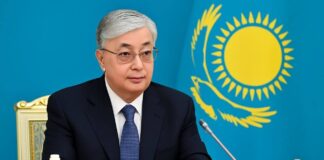As nations increasingly turn to digital assets to bolster their economies, Kazakhstan’s recent proposal for a strategic crypto reserve has drawn comparisons to El Salvador’s pioneering Bitcoin experiment. While both countries are leveraging cryptocurrency to challenge traditional finance, their approaches differ significantly in scope, execution, and economic context. Kazakhstan’s measured, diversified strategy contrasts with El Salvador’s bold, all-in Bitcoin bet. Below, we break down the key elements of each initiative and explore what they reveal about the global crypto adoption trend.

El Salvador: The Bitcoin Pioneer (Since 2021)
El Salvador made history in June 2021 by becoming the first country to adopt Bitcoin as legal tender, a move spearheaded by President Nayib Bukele. The strategy aimed to provide financial inclusion for the unbanked (over 70% of Salvadorans at the time), reduce remittance costs (which account for about 25% of GDP), and create a national reserve asset. The government launched the Chivo Wallet for citizens to hold and transact in Bitcoin alongside the U.S. dollar, which remains the official currency.
Key components include:
– Direct Purchases and Holdings: El Salvador has aggressively bought Bitcoin, starting with an initial $101 million purchase of 2,381 BTC. By September 2025, the country’s holdings exceed 5,900 BTC (valued at over $350 million at current prices around $60,000 per BTC), funded by public bonds like the “Volcano Bonds” (though issuance has been delayed due to market conditions).
– Mining and Infrastructure: The nation has invested in geothermal-powered Bitcoin mining using volcanic energy, aiming for sustainability. Projects like the Bitcoin City—a tax-free zone powered by volcanoes—were proposed but remain in early planning stages.
– Adoption and Challenges: Bitcoin is mandatory for merchants to accept, but usage has been low due to volatility concerns, regulatory pushback from the IMF (which withheld loans until reforms), and public skepticism. Despite this, El Salvador has seen tourism boosts from crypto enthusiasts and positioned itself as a “Bitcoin Beach” hub. Economic impacts include faster remittances via Lightning Network integrations, but critics point to opportunity costs and environmental debates.
El Salvador’s approach is revolutionary yet risky: it’s a full-throated endorsement of Bitcoin as a currency and store of value, treating it as a hedge against dollar dependency and inflation.
Kazakhstan: A Diversified Digital Asset Reserve (2025 Proposal)
In contrast, Kazakhstan’s strategy, announced by President Kassym-Jomart Tokayev on September 8, 2025, focuses on creating a “State Fund of Digital Assets” managed by the National Bank’s Investment Corporation. This reserve targets “promising” cryptocurrencies and tokenized assets, building on the country’s established role as a crypto mining leader rather than a full legal tender adoption.
Key components include:
–
Reserve Composition and Funding: Unlike El Salvador’s Bitcoin-only focus, Kazakhstan plans a broader portfolio, potentially including Bitcoin, Ethereum, and tokenized real-world assets. Funding could come from seized digital assets, mining revenues (the country contributes ~13% of global Bitcoin hashrate), and state investments. Legislation to liberalize digital markets is slated for 2026, aiming for full national digitalization by 2028.
– **Mining and Innovation Ecosystem**: Kazakhstan has been a mining powerhouse since China’s 2021 ban, generating millions in taxes. The reserve ties into this, with plans for Central Asia’s first spot Bitcoin ETF (launching August 2025), crypto payment cards via Mastercard, and the “CryptoCity” in Alatau—a smart city where crypto and the digital tenge CBDC will enable seamless transactions for daily needs.
– Adoption and Economic Goals:
Crypto ownership has doubled in two years, driven by mining jobs and fintech growth. The strategy diversifies away from oil dependency, enhances financial sovereignty, and integrates crypto into regulated frameworks without mandating its use as currency. No major international backlash yet, though energy consumption remains a watchpoint.
Kazakhstan’s playbook is pragmatic and tech-forward, emphasizing infrastructure and diversification over ideological commitment to one asset.
Head-to-Head Comparison:
Similarities and Differences
Both nations are trailblazers in state-level crypto adoption, using digital assets to modernize economies and attract global investment. They share goals of financial innovation—El Salvador for inclusion and remittances, Kazakhstan for diversification and digitalization—and both leverage natural resources (geothermal in El Salvador, abundant hydropower in Kazakhstan) for mining. The “snowball effect” is evident: El Salvador inspired early movers, while Kazakhstan draws from U.S. and others’ reserves.
However, stark differences highlight their contexts:
Scope and Focus:
– El Salvador: Narrow and aggressive—Bitcoin as legal tender and sole reserve asset. It’s a currency experiment with high visibility but limited diversification.
– Kazakhstan: Broad and strategic—a multi-asset reserve integrated with CBDCs and fintech. It avoids legal tender status, focusing on reserves and ecosystem building.
– Implementation Timeline and Scale:
– El Salvador: Launched in 2021 with immediate mandates; holdings are substantial but volatile (e.g., unrealized losses during bear markets). Population: ~6.5 million; GDP: ~$32 billion.
– Kazakhstan: Proposal stage in 2025, with phased rollout by 2026–2028. Mining scale is massive (global leader), but reserve details are emerging. Population: ~20 million; GDP: ~$260 billion (resource-rich).
– Risks and Reception:
– El Salvador: Faces volatility (Bitcoin’s price swings have led to paper losses), IMF criticism, and low everyday adoption. Successes include remittance efficiencies and Bukele’s pro-crypto branding.
– Kazakhstan: Lower ideological risk, but regulatory hurdles and energy strain could arise. Stronger institutional backing via the National Bank positions it for stability, with crypto ownership already surging.
– Economic Impact:
– El Salvador: Mixed—boosted tourism and innovation but strained public finances. Bitcoin’s role in GDP remains marginal.
– Kazakhstan: Potential for high impact via mining taxes and ETF inflows, hedging oil risks in a $3.92 trillion crypto market.
| Aspect | El Salvador | Kazakhstan |
|———————|————————————–|————————————-|
| **Primary Asset** | Bitcoin only | Multiple cryptos & tokenized assets |
| **Legal Status** | Legal tender since 2021 | Reserve fund; not legal tender |
| **Holdings/Funding**| ~5,900 BTC; govt purchases/bonds | Mining revenue, seized assets |
| **Key Initiatives** | Chivo Wallet, Bitcoin City | CryptoCity, Bitcoin ETF, CBDC |
| **Challenges** | Volatility, IMF opposition | Regulatory rollout, energy use |
| **Global Influence**| Trailblazer for adoption | Leader in mining & diversification |
Lessons for the Global Crypto Trend
El Salvador’s strategy proves that bold moves can put a small nation on the map, inspiring countries like the U.S. (with its 2025 crypto reserve) and now Kazakhstan. Yet, its challenges underscore the need for caution—volatility and external pressures can undermine gains. Kazakhstan’s approach offers a blueprint for larger economies: diversify, regulate, and integrate with existing systems to mitigate risks while capturing upside.
As more nations eye crypto reserves (e.g., Brazil, Russia), the contrast between these two highlights a spectrum—from revolutionary zeal to strategic pragmatism. El Salvador disrupted the status quo; Kazakhstan is building on it. Together, they signal that the future of national finance is decentralized, innovative, and increasingly crypto-native.
What do you think—will Kazakhstan’s model prove more sustainable, or does El Salvador’s audacity win out in the long run?
Follow Danchima Media Crypto News Blog for more on global crypto policies and blockchain breakthroughs.





Can you be more specific about the content of your article? After reading it, I still have some doubts. Hope you can help me.